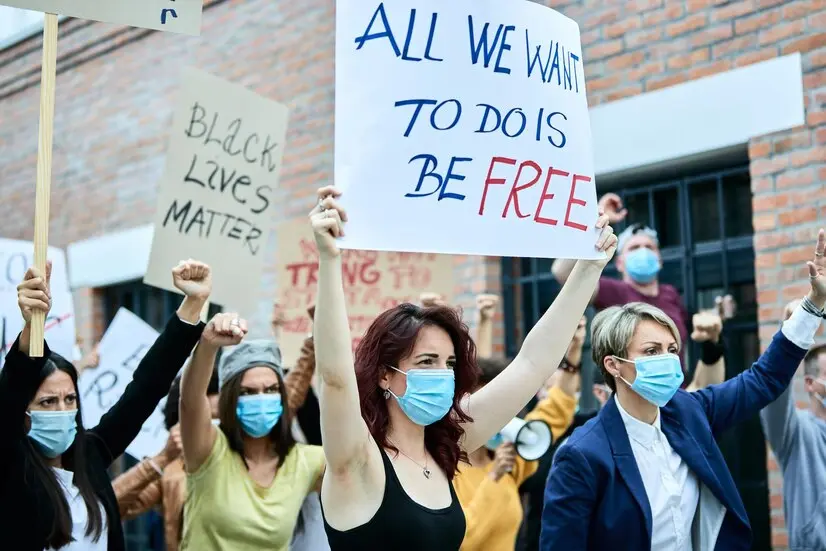Healthcare is a basic human right, yet millions worldwide struggle to access it due to financial barriers, systemic inequities, and the rise of privatized systems. The rally for free healthcare represents a growing movement demanding equitable healthcare for all, regardless of income or social status. This article dives into the reasons behind such rallies, their global significance, and what they mean for the future of public health.
Why People Are Rallying for Free Healthcare
The demand for free healthcare is rooted in the challenges people face with privatized systems. Privatization often leads to higher costs, limited accessibility, and profit-driven care, leaving marginalized communities underserved.
Here are key reasons behind the rally for free healthcare:
- Skyrocketing Costs: Medical expenses in privatized systems can bankrupt families. From surgeries to life-saving medications, even basic care is unaffordable for many.
- Health Inequities: Low-income families, uninsured individuals, and vulnerable populations often bear the brunt of inaccessible healthcare.
- Public Good vs. Private Profit: Healthcare systems driven by profit frequently prioritize revenue over patients’ needs, leading to compromised care quality.
- Post-Pandemic Realizations: The COVID-19 pandemic exposed global healthcare weaknesses, emphasizing the need for robust public systems that prioritize access over affordability.
These factors have fueled protests worldwide, uniting healthcare workers, patients, and activists under one banner: accessible healthcare for all.
Impact of Privatization on Healthcare Accessibility
Privatization has far-reaching consequences for healthcare accessibility and affordability. While proponents argue it increases efficiency, the reality for ordinary people often tells a different story.
- Rising Costs of Care:
Privatized systems prioritize profit, often leading to inflated prices for medical services. From basic consultations to advanced surgeries, patients pay the price. - Limited Access to Vulnerable Populations:
Privatized systems often leave rural and low-income areas underserved because these regions aren’t deemed profitable. This disparity worsens health outcomes for marginalized groups. - Health as a Commodity:
Healthcare should be a public good, not a luxury reserved for the wealthy. Privatization transforms it into a commodity, with quality care accessible only to those who can afford it. - Strain on Public Hospitals:
As privatization grows, public hospitals receive less funding, leaving them ill-equipped to handle the overflow of patients who can’t afford private care.
The rally for free healthcare demands an end to privatization that prioritizes profits over people’s lives and calls for investments in public health infrastructure.
The Economic and Social Case for Free Healthcare
Free healthcare isn’t just a moral imperative—it’s a smart economic and social decision. Here’s why governments and policymakers should take it seriously:
- Healthier Populations Mean Stronger Economies:
When people have access to preventive care, they miss fewer workdays and contribute more to the economy. A healthy workforce drives productivity. - Reduced Long-Term Costs:
Treating illnesses early or preventing them altogether is significantly cheaper than managing advanced conditions. Free healthcare systems help reduce the financial burden on both individuals and governments. - Social Equity and Stability:
Free healthcare systems promote equality by ensuring that everyone, regardless of income or status, can access quality care. This fosters societal cohesion and reduces inequality. - Public Trust in Government:
When governments invest in free healthcare, they demonstrate a commitment to their citizens’ well-being, which builds trust and strengthens democracy.
Countries like Canada and the UK have proven that free healthcare systems are both sustainable and beneficial, offering lessons for others to follow.
Voices from the Rally: Stories from Healthcare Workers and Patients
At the heart of any rally for free healthcare are the people—healthcare workers, patients, and their families. Their stories highlight the urgent need for change.
- A Nurse’s Perspective: “I’ve worked in public hospitals for over a decade. It’s heartbreaking to see patients denied care because they can’t pay. Free healthcare isn’t just a demand—it’s a necessity.”
- A Patient’s Struggle: “I was diagnosed with a chronic illness two years ago. Without insurance, I had to choose between paying for treatment or my rent. No one should have to make that choice.”
- An Activist’s Voice: “We’re not asking for luxuries—we’re asking for basic human rights. Healthcare should be for everyone, not just the privileged few.”
Such voices amplify the human side of the debate, making it impossible to ignore the urgency of their cause.
Free Healthcare Around the World: Lessons and Inspirations
Several countries have successfully implemented free healthcare systems. These examples can inspire and guide nations still grappling with healthcare access issues:
- Canada:
The Canadian healthcare system provides universal coverage for essential medical services. Funded through taxes, it ensures no one is denied care based on their ability to pay. - United Kingdom:
The NHS (National Health Service) offers free healthcare at the point of delivery. It is funded by taxpayers and consistently ranks as one of the most efficient healthcare systems in the world. - Cuba:
Despite economic challenges, Cuba boasts a healthcare system focused on prevention and universal access. Its emphasis on community-based care ensures high health outcomes. - Sweden:
Swedish citizens benefit from a tax-funded healthcare system that prioritizes equity and accessibility. Out-of-pocket expenses are minimal, ensuring financial protection for all.
These systems prove that free healthcare isn’t a pipe dream—it’s a proven, achievable goal.
Challenges and Roadblocks to Implementing Free Healthcare
While free healthcare is a noble goal, implementing it comes with challenges. Governments and advocates must address these roadblocks:
- Financial Constraints:
Funding free healthcare requires significant investments. Policymakers must identify sustainable revenue streams, such as progressive taxation or reallocating existing budgets. - Political Will:
Strong political leadership is crucial to overcome resistance from privatization advocates and corporations benefiting from the status quo. - Healthcare Workforce:
Expanding access means investing in training, hiring, and retaining healthcare professionals to meet increased demand. - Public Awareness:
Misinformation and skepticism can hinder progress. Educating the public about the benefits of free healthcare is essential for gaining support.
By addressing these challenges head-on, advocates can pave the way for meaningful reform.
What Governments Can Do: Solutions for a Healthier Future
Governments have the power to make free healthcare a reality. Here are steps they can take:
- Invest in Public Health Systems:
Strengthen public hospitals, clinics, and primary care networks to handle increased demand. - Implement Progressive Taxation:
Ensure funding by taxing higher incomes and large corporations while protecting low-income citizens. - Promote Preventive Care:
Focus on preventive healthcare to reduce long-term costs and improve overall health outcomes. - Engage Communities:
Work with communities to understand their needs and design healthcare systems that work for everyone. - Collaborate Internationally:
Learn from countries with successful free healthcare systems and adapt their best practices.
Governments must recognize that investing in health is an investment in the future.
Call to Action: Why Advocacy Matters
The rally for free healthcare is more than just a protest—it’s a movement for justice, equity, and dignity. Everyone has a role to play in this fight:
- Join Rallies: Show solidarity with healthcare workers and patients fighting for their rights.
- Raise Awareness: Share stories, statistics, and information to educate others about the importance of free healthcare.
- Support Advocacy Groups: Donate to organizations championing healthcare reform.
- Hold Leaders Accountable: Demand action from policymakers and support candidates who prioritize public health.
Together, we can create a world where healthcare is a right, not a privilege.
Conclusion: A Vision for Universal Free Healthcare
The rally for free healthcare represents hope for a future where no one is denied medical care because of their financial situation. It’s a call for compassion, equity, and systemic change.
Achieving universal free healthcare requires collaboration between governments, communities, and individuals. By standing together, we can ensure that healthcare becomes what it should have always been: a fundamental human right.

